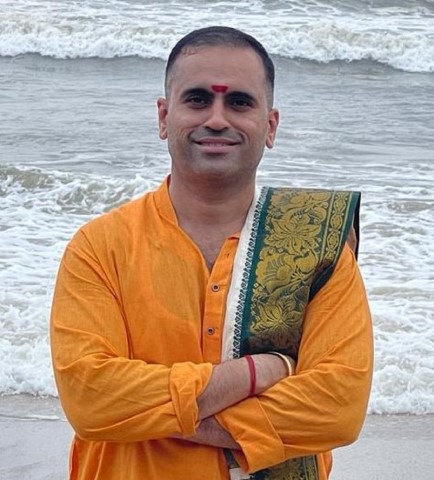- Based on the Ancient Hindu Soorya Siddhant, Ganesh Chaturthi is on 18th September – Gaurav Deshpande
- Except in Maharashtra, all established almanacs in India state Ganesh Chaturthi on 18th September
PUNE: Hindu tithis and muhurtas are all based on complex mathematical calculations based on celestial positions as given in Soorya Siddhant. All almanacs (panchangs) up until 1950 were based on the ancient Hindu Soorya Siddhant. In Maharashtra, all almanacs thereafter are based on the ephemeris from NASA.
The ephemeris received from NASA and the calculations based on Soorya Siddhant have a discrepancy in the tithi calculations of certain tithi as is the case with this year’s Ganesh Chaturthi. Gaurav Deshpande has made an appeal to all in Maharashtra to celebrate Ganesh Chaturthi on 18th September. Gaurav Deshpande has been publishing an almanac system based on Soorya Siddhant by the name of ‘DharmaShastra Sammat Deshpande Panchang’ for the last 9 years in Maharashtra.
The established almanacs by The Banaras Hindu University, Shrungeri Shankaracharya Peeth, the 150-year-old almanac recognized by Madan Mohan Malviya, Uttaradimath Panchang published from Mantralay (Vaishnav Acharya), and several established almanacs have declared Ganesh Chaturthi on 18th September, then why are only Maharashtra Almanacs claiming the date as 19th September?
Speaking at a press meet Gaurav Deshpande said, “According to Soorya Siddhant, tithi calculation is based on the maximum hours it extends to and the minimum hours it reduces to. A tithi can be reduced by 21 hours 24 minutes or increased to about 26 hours as per the boundary limit for tithis set by our ancient Dharmashashtra. For the ephemeris got from NASA; the tithi can increase up to 27 hours and reduce down to 19 hours 30 minutes. This difference is giving rise to the disparity in the dates of certain festivities in Maharashtra.”
He further added, “All formulae to calculate a tithi have been elaborated in the Soorya Siddhant then why can’t we rectify our error rather than disregard our established scientific astronomical legacy?”
The Soorya-Siddhant is based on ‘Soorya Granth’ a historical epic on astronomy spelling out the advice given by Soorya Dev to May Rakshasa and dates back to Satyug – the age of truth or sincerity.

